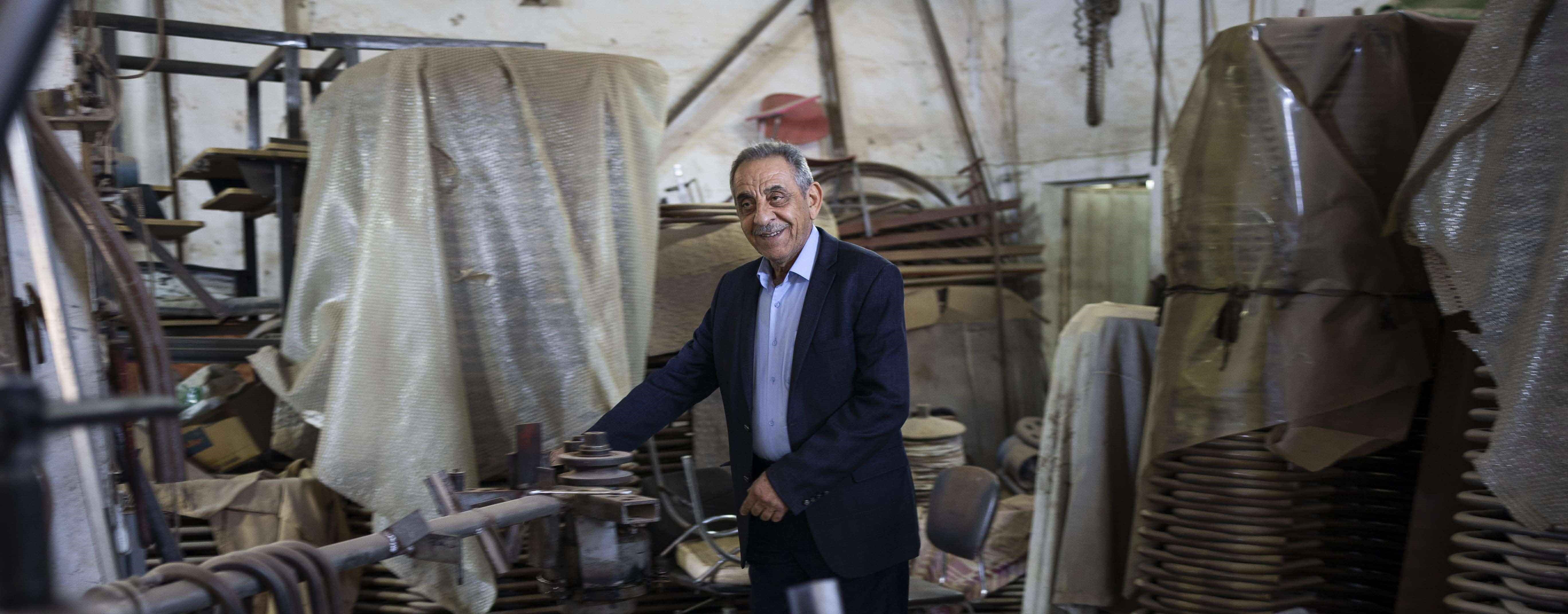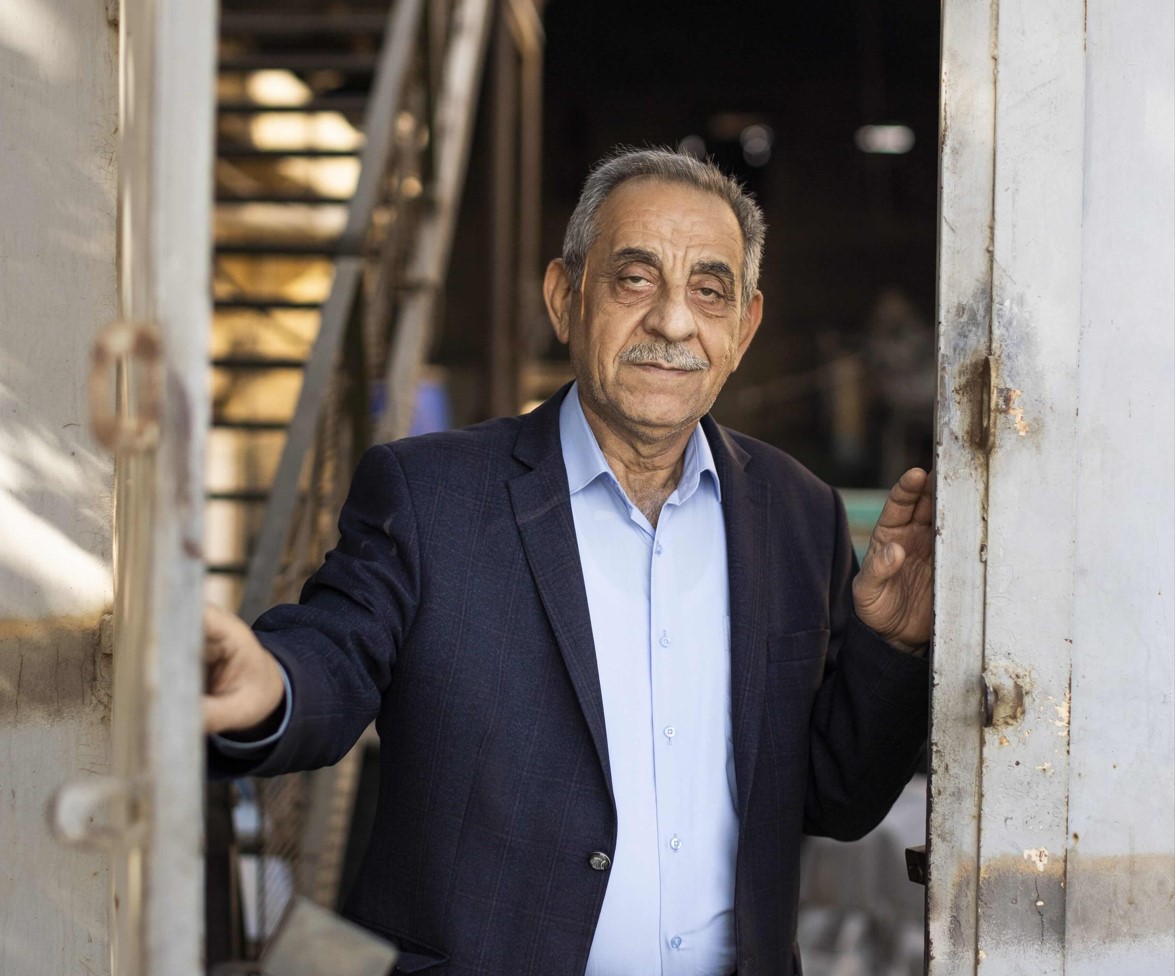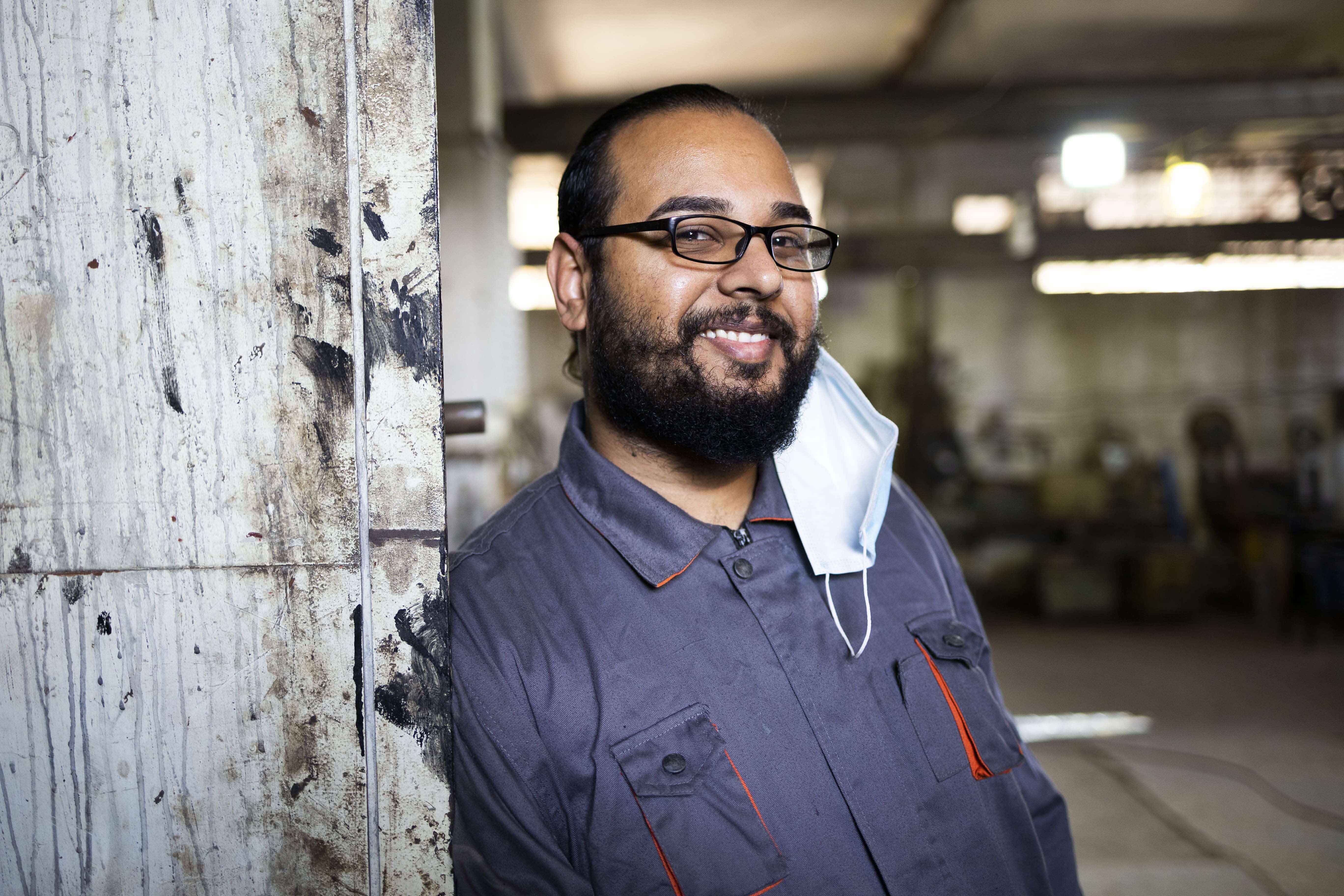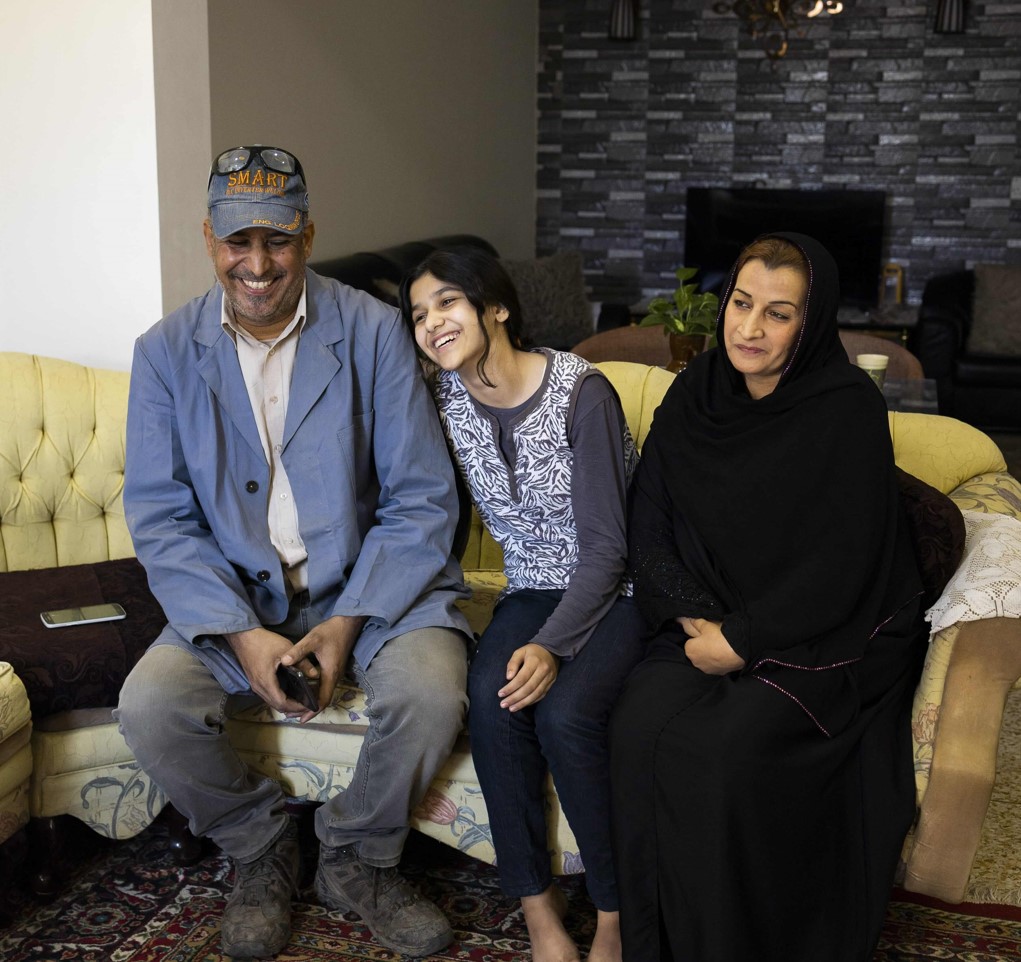In its 38 years, The Baghdad Company has overcome setbacks time and time again.
The owner, Estabraq Gabar Muhdi, started the company alongside his older brother who was called to military service soon after launching the business, and eventually killed in action.

Estabraq grew the business alone in the years thereafter, but then from 2006-2008, the area of Baghdad where the company is located became inaccessible during the Shia–Sunni fighting of The Iraqi Civil War. Because of the violence in Baghdad at that time, Estabraq and his family were displaced—living in Jordan for two years before they were able to return to their home.
Now, potholes and jagged rocks speckle the road leading to the factory. Many of the surrounding buildings are in disrepair or completely destroyed. For Estabraq, rebuilding here meant overcoming more than just the past traumas of wars.
Estabraq is a victim of militia extortion. He’s survived multiple assasination and kidnapping attempts. And even when he’s trying to conduct his business of selling bulk-order furniture to schools and other institutions, he has to deal with government corruption.
“It’s like paying double taxes to run a business here,” he said.

Despite these setbacks, Estabraq has remained steadfast. At the shop, employees describe him as fair and caring. In some instances, he has gone above and beyond the call of duty to help them by educating new, unskilled employees, and giving them the kinds of opportunities to learn a trade that can feel impossible to find in Baghdad.
Estabraq takes pride—and teaches his men to take pride—in precision.
“Everything fits down to the millimeter,” said Salih Thaeer, 31.
Salih speaks a cool, casual English that can be hard even for some local university students of the language to master. It’s a skill he acquired while translating for the U.S. government for almost a year in 2008. At that time, it was highly dangerous to collaborate with the United States, not just for the translators but also for their families who could become victims of retaliation for what was seen as traitorous collaboration with enemies.

Salih planned to apply for a Special Immigrant Visa at the end of his time translating, but the troops pulled out of Baghdad before he’d worked long enough to meet the length-of-service requirements. For the next seven year Salih was out of work, until Estabraq gave him a job at the factory in 2016.
Now, Salih’s salary supports his entire family, including his sister who couldn’t find work after graduating from college; his brother, who was injured in a car accident that left him unable to work for several months; and his parents who lost their auto-repair business after ISIL hijacked multiple shipments of car-repair supplies, leaving them in debt.
“After the loss we suffered, I’m getting back on my feet step by step,” he said.
Hassen Alcoy Hessen, 45, has been at the factory for five years, working as a blacksmith and a foreman. His job at the factory enabled him to send his son to college, and to keep his two younger daughters in school. He said that Covid-19 hit the factory hard, but the new machines they were able to purchase using EDF funding transformed the quality of their products, and drastically reduced the time spent making them.

Hassen said that in addition to his pay at the factory, Estabraq allows him to use the tools and raw materials to make furniture and gifts for his family, like their dining room table and a planter that he recently gave his wife as a gift.
“I feel lucky to work for him,” Hassen said.


